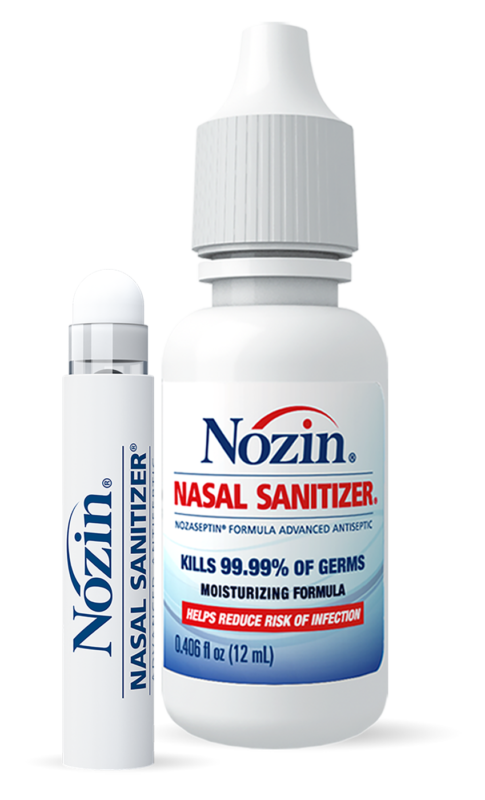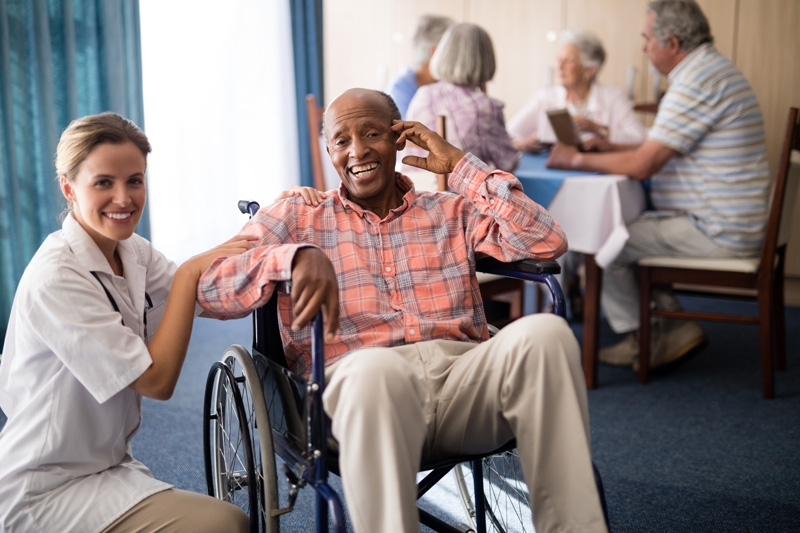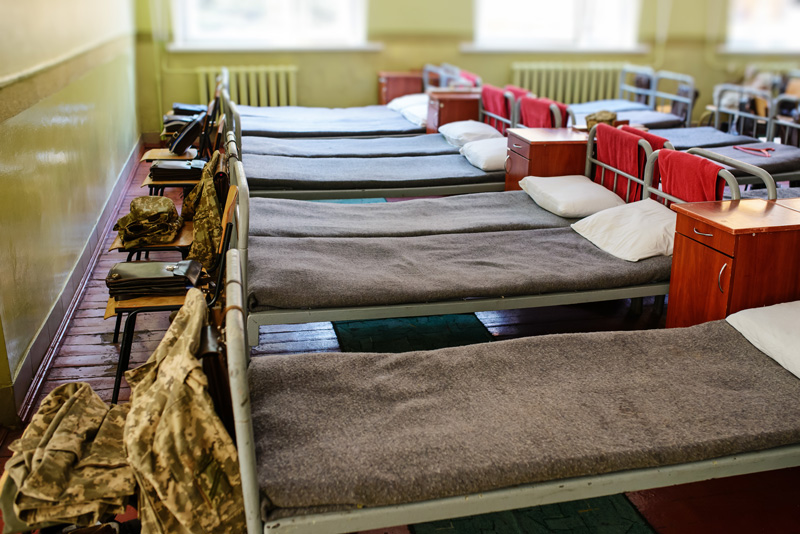Who should use Nozin® Nasal Sanitizer® antiseptic?
Bacteria are all around us — and all over us. That is why it is important to practice daily hygiene, including washing hands. Health professionals also recommend using Nozin® Nasal Sanitizer® antiseptic as part of daily hygiene, especially because hand and nose contact occurs frequently during the day. This is good health advice for everyone.
Nozin® Nasal Sanitizer® antiseptic is designed to help improve hygiene at the nose because the nasal area is a primary point of colonization of bacteria. Studies show that we may touch our nose over 100 times a day on average, which can lead to the spread of bacteria by our hands to other parts of the body as well as to others. Nozin® Nasal Sanitizer® antiseptic decreases bacteria on the skin at the opening of the nose. This decolonizing of pathogens can help reduce the risk of infections.
Nozin® Nasal Sanitizer® is recommended to help protect families, students, people in crowded environments such as theaters, gyms and restaurants. Also, below are noted the people with certain jobs, hobbies and living situations who are particularly advised to improve hygiene as they can be at a greater risk for bacterial infection because they’re at a greater risk for exposure.

Travelers
Travel is a great way to be exposed to new cultures...and new bacteria. Most everywhere travelers go, there are public spaces where surfaces have been touched by hundreds or thousands of other people, any number of whom might be carrying potentially harmful bacteria. These can be transferred by touch to the nose.
Some bacteria can last up to 168 hours on the cloth seat back pockets in airplanes, according to a study by Auburn University. Hotels can also be hotspots for bacteria. In a study of six Canadian hotel chains, researchers found four different bacteria capable of causing serious infections. The most contaminated surfaces included comforters, TV remotes, bathroom counter-tops, faucets and toilets.
Childcare Workers & Teachers
Working with children and students might be good for the heart, but it can also provide a venue for transmission of pathogens. Roughly 18 percent of children had nasal colonizations with pathogenic bacteria in one large study of 24 daycare centers across two states.
Kids are also more likely than adults to spread bacteria, because they typically aren’t diligent hand washers. They touch their mouths and noses more often than adults. They can become vectors of transmission as they touch toys, desks, doors, other children and their caregivers.

Healthcare Workers and Patients
Healthcare facilities have long maintained vigilance against bacterial infections. This is critical as up to 30% of the general population can be nasal carriers of pathogenic bacteria according to CDC estimates. Because patients may have open wounds, have compromised immune systems and/or may be connected to invasive medical equipment they can be at higher risk from bacteria and healthcare associated infections (HAI).
Healthcare workers spend their days interacting with colonized patients. They also come in contact with surfaces and items those patients have touched, so even if they adhere to contact precautions (i.e. wearing gloves), they may still be exposed indirectly by turning off a light or moving a bedside tray table. Trusted by hundreds of hospitals, Nozin® Nasal Sanitizer® antiseptic is used every day in hospitals to help protect patients and those who care for them.
Athletes
Optimal physical health and well-being are top priorities for athletes in every discipline. In spite of this, the exercises performed, as well as the environment in which they are practiced, often pose great risk of infection for athletes. Sweat and humid environments support a fertile habitat for germs to thrive and create opportunities for pathogens to grow. Locker rooms, gyms, shared sports equipment, and physical contact put athletes at risk for acquiring bacterial infections. Efforts to prevent bacterial infections often overlook the nasal vestibule which is a fertile ground for bacteria to live and transmit.
Skin infections caused by bacteria are can be commonly spread by direct human contact, so athletes who compete in contact sports are vulnerable to these infections. Cuts, scrapes, and friction against the skin all provide opportunities to cause infections. Among 226 athletic trainers at high schools and colleges, 23 percent reported at least one case of community-acquired infections among their athletes during that school year. Frequent hand washing can help with protection. Nozin® Nasal Sanitizer® antiseptic use can be part of good hygiene to help reduce the risk of infection.
People in Communal Living Spaces
Living in a nursing home, college dorm, military barracks or other crowded residence increases the risk for colonization and infection. When people reside in such close quarters, all it takes to spread bacteria is one infected or colonized person — especially if there are communal bathrooms, common areas or shared washing machines.
The risk for exposure is greater in nursing homes than other types of communal living, because residents are more likely than college students to spend time in hospitals and other healthcare facilities where they might come into contact with harmful bacteria. The risk of infection is also higher for seniors, who are more likely to have chronic health conditions and compromised immune systems.












